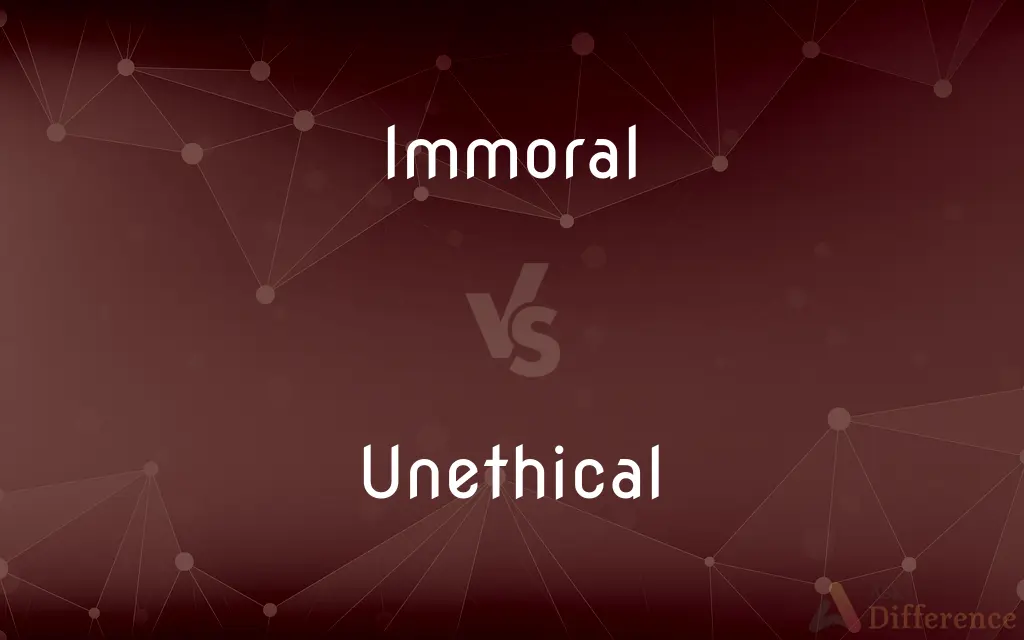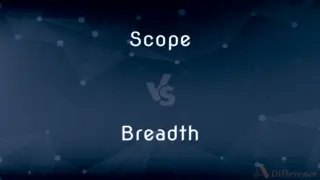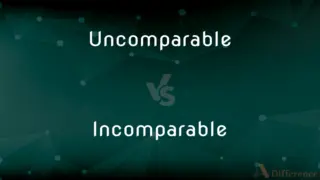Immoral vs. Unethical — What's the Difference?
By Tayyaba Rehman — Updated on October 22, 2023
Immoral refers to actions against moral principles, often pertaining to right and wrong in personal behavior, while Unethical pertains to conduct that violates ethical standards, often in professional contexts.

Difference Between Immoral and Unethical
Table of Contents
ADVERTISEMENT
Key Differences
Immoral and Unethical are both terms used to describe actions or behaviors that do not conform to accepted standards. However, the context in which they're used and their underlying implications can differ. Immoral typically addresses personal behavior that goes against moral principles or societal norms. Unethical, on the other hand, often deals with professional or organizational standards, highlighting actions that might breach established ethical guidelines.
The origins of what is considered Immoral can often be traced back to religious, cultural, or societal beliefs. Such beliefs dictate what's right and wrong in a personal sense. Unethical, in contrast, doesn't necessarily tie to personal beliefs but to the standards set by professions, industries, or organizations. For instance, a business practice can be deemed Unethical without being Immoral.
Immoral actions, such as lying to a loved one, can cause emotional or psychological harm and may reflect on a person's character. Unethical actions, like falsifying financial records, might not hurt someone emotionally but can have legal implications and reflect on professional integrity. It's worth noting that while all Unethical actions might not be Immoral, all Immoral actions are generally considered Unethical in a broader sense.
In everyday usage, Immoral often carries a heavier emotional weight, as it's directly related to personal values and character. Unethical, while serious, is more tied to breaches in professional conduct. Despite these distinctions, the terms are occasionally used interchangeably, depending on the context.
Comparison Chart
Definition
Pertains to personal behavior against moral principles.
Relates to conduct violating professional or organizational standards.
ADVERTISEMENT
Origins
Rooted in religious, cultural, or societal norms.
Derived from professional, industry, or organizational guidelines.
Typical Implications
Reflects on personal character.
Reflects on professional integrity.
Examples
Lying to a loved one, stealing.
Falsifying financial records, plagiarism.
Emotional Weight
Carries heavier emotional connotations.
More analytical, tied to breaches in professional conduct.
Compare with Definitions
Immoral
Indicative of a lack of good character.
He was shunned for his immoral choices.
Unethical
Contrary to the ethical standards of a particular group.
The scientist's methods were deemed unethical by the review board.
Immoral
Lacking moral decency.
Spreading malicious rumors is an immoral act.
Unethical
Indicative of a lack of professional integrity.
Plagiarizing someone else's work is deeply unethical.
Immoral
Violating societal norms of behavior.
Their immoral behavior caused a scandal in the community.
Unethical
Not conforming to approved professional standards.
Accepting bribes is unethical and can lead to legal trouble.
Immoral
Not adhering to ethical righteousness.
Taking advantage of someone's trust is immoral.
Unethical
Lacking moral principle in a professional context.
His unethical practices damaged the company's reputation.
Immoral
Not adhering to ethical or moral principles;
Base and unpatriotic motives
A base, degrading way of life
Cheating is dishonorable
They considered colonialism immoral
Unethical practices in handling public funds
Unethical
Being outside the bounds of ethical guidelines.
The lawyer's conduct was seen as unethical by his peers.
Immoral
Not conforming to accepted standards of morality
Unseemly and immoral behaviour
Unethical
Not morally correct
It is unethical to torment any creature for entertainment
Immoral
Contrary to established moral principles.
Unethical
Breaching the established standards of conduct or behavior within a particular organization or profession.
He was sacked for unethical conduct.
Immoral
Breaching principles of natural law, rectitude, or justice, and so inconsistent with the demands of virtue, purity, or "good morals"; not right, not moral. Compare unethical, illegal.
Unethical
Immoral, morally wrong.
Immoral
Not moral; inconsistent with rectitude, purity, or good morals; contrary to conscience or the divine law; wicked; unjust; dishonest; vicious; licentious; as, an immoral man; an immoral deed.
Unethical
Not conforming to approved standards of social or professional behavior;
Unethical business practices
Immoral
Concerned with principles of right and wrong or conforming to standards of behavior and character based on those principles;
Moral sense
A moral scrutiny
A moral lesson
A moral quandary
Moral convictions
A moral life
Unethical
Not adhering to ethical or moral principles;
Base and unpatriotic motives
A base, degrading way of life
Cheating is dishonorable
They considered colonialism immoral
Unethical practices in handling public funds
Immoral
Morally unprincipled;
Immoral behavior
Immoral
Characterized by wickedness or immorality;
Led a very bad life
Immoral
Marked by immorality; deviating from what is considered right or proper or good;
Depraved criminals
A perverted sense of loyalty
The reprobate conduct of a gambling aristocrat
Common Curiosities
Are Immoral actions always illegal?
No, while Immoral actions can be wrong by societal norms, they aren't always illegal.
Can industry-specific guidelines define Unethical behavior?
Yes, many professions have specific ethical standards, and breaching them is considered Unethical.
Can an action be both Immoral and Unethical?
Yes, an action can be both Immoral (violating personal morals) and Unethical (breaching professional standards).
Can something be Unethical but not Immoral?
Yes, an action can breach professional standards (Unethical) without violating personal morals (Immoral).
Are religious beliefs the sole basis for what's considered Immoral?
No, while religion can influence morality, cultural and societal norms also play roles in defining Immorality.
Can company policies dictate what's Unethical?
Yes, companies often have codes of conduct, and breaches can be deemed Unethical.
Are all Unethical practices punishable by law?
No, while some Unethical practices are illegal, others might result in professional consequences but not legal ones.
Does Immoral behavior always harm someone?
Immoral behavior often causes harm, either emotionally, physically, or psychologically, but not always.
Can personal beliefs influence what one views as Immoral?
Yes, personal beliefs, whether religious or cultural, can shape one's view on Immorality.
Does societal change influence what's considered Immoral?
Societal norms evolve, and so can perceptions of Immorality.
Are ethical guidelines the same worldwide?
No, what's considered Unethical in one culture or profession might be acceptable in another.
Do all industries have clear-cut ethical guidelines?
While many industries have established ethical standards, not all have clear-cut or universally accepted guidelines.
Does Immorality always carry negative connotations?
Generally, yes. Immoral actions are usually viewed negatively due to their violation of accepted norms.
Can an action be ethically right but still be seen as Unethical by some?
Yes, due to varying ethical guidelines and personal beliefs, interpretations of what's Unethical can differ.
Can one's upbringing influence their views on Immorality?
Absolutely. Upbringing, which includes cultural, religious, and personal experiences, can shape views on Immorality.
Share Your Discovery

Previous Comparison
Scope vs. Breadth
Next Comparison
Uncomparable vs. IncomparableAuthor Spotlight
Written by
Tayyaba RehmanTayyaba Rehman is a distinguished writer, currently serving as a primary contributor to askdifference.com. As a researcher in semantics and etymology, Tayyaba's passion for the complexity of languages and their distinctions has found a perfect home on the platform. Tayyaba delves into the intricacies of language, distinguishing between commonly confused words and phrases, thereby providing clarity for readers worldwide.















































